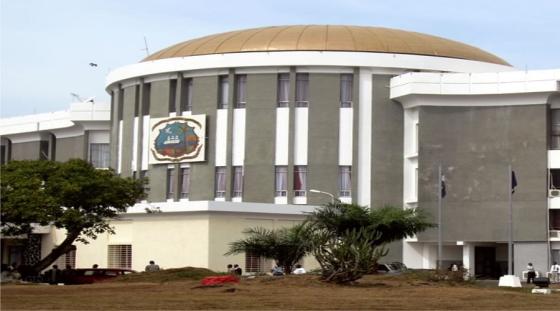Liberia: Revenue Sharing Bill Crosses Hurdles

— But House rejects concurrence of repealing tenure positions
The House of Representatives has voted in favor of a bill that the Senate had already approved, allowing counties to raise and utilize their funds as long as they are subject to appropriate safeguards by the central government.
However, the House and the Senate passed a separate version of the bill. The Revenue Sharing Bill is a piece of legislation that is crucial to President George Weah’s plan to execute Chapter 4 of the Local Government Act of 2018, which asks for revenue sharing between the national and local governments in Liberia.
The bill, when signed into law by the President, would create the necessary budgetary space by giving local government officials the resources they need to offer services to residents at the local level — provided the money collected is not wasted.
The measure was approved by 26 lawmakers yesterday in response to a report from the House Joint Committee on Judiciary and Ways, Means, Finance, and Development Planning. The Joint Committee’s report states that the bill’s goals are to increase “equity” in yearly revenue and to ensure an equal distribution of natural resource revenues.
“The bill will also provide incentives that will encourage local governments to be effective and efficient in tapping into their revenue mobilization procedure under the guidance of the Public Management Financial Law,” the report stated.
Many see the revenue sharing bill, which has now passed its hurdles at the Legislature, as the basis for the function of the country’s decentralization since the Local Government Act was created to address Liberia's enduring underdevelopment, lack of citizen participation, and fiscal non-transparency, as well as the lack of accountability in the way the local governments operate.
Meanwhile, the House also decided to reject a bill from the Senate to remove tenure of services from a few of the government institutions currently benefiting and maintain it only with those institutions that are integrity institutions.
If the House had agreed with the Senate, tenure posts would only be permitted for integrity institutions, restricting presidential involvement and granting independence to the leaders of those agencies. But for non-integrity institutions, the Senate believes that it was necessary to cancel the tenure position for its officials so that any President would have the authority to designate officials to carry out his agenda.
The National Elections Commission, Liberian Human Rights Commission, Liberia Extractive Industries Transparency Initiative, Liberia Anti-Corruption Commission, Internal Audit Agency, Central Bank of Liberia, and Civil Service Commission are among the institutions whose tenure positions were upheld by the Senate.
However, the rest, including the Liberia Revenue Authority, National Social Security and Welfare Corporation, Liberia Airport Authority, National Oil Company of Liberia, and the National Fisheries and Aquaculture Authority, among others, saw their tenures scrapped by the Senate.
The Senate action occurs almost five years to the day after Weah sent a bill to the 54th Legislature, which was in session at the time, requesting the termination of all tenured jobs within the Executive Branch of Government.
Weah said that tenure positions, which were established as a means of preserving the independence and freedom of those services from political or partisan influence, were obstructing not just the development program but would also do so for any future president. Weah did not, however, elaborate on how his position had prevented or hindered his development goals.
“Except as otherwise provided in the constitution of the Republic of Liberia, all statutory provisions of laws providing for the tenure of office, terms of office, tenure, or anything that provides security of tenure, of all public officials appointed by the President under the Executive Branch of Government, are hereby repealed,” Weah wrote in 2018.
“The President shall have and exercise all the powers necessary and convenient for the effective administration of the Executive Branch and all the institutions under its control, and to this end, all appointed officials thereof shall hold office at the will and pleasure of the president.”
Meanwhile, the House also decided to ratify the Hong Kong International Convention for the ecologically friendly and secure recycling of ships.
The legislation has now been sent to the Senate for approval before going into force. The convention aims to ensure that ships do not cause unneeded dangers to the environment, human health, or safety when they are recycled after serving their intended purpose.
It aims to handle every problem associated with ship recycling, including the possibility that ships sold for scrapping may contain dangerous materials to the environment, including asbestos, heavy metals, hydrocarbons, ozone-depleting compounds, and others.
Editor's note: This story early stated that the House agreed with the Senate in approving the Revenue Sharing Bill, rather than that the House passed a distinct version.
